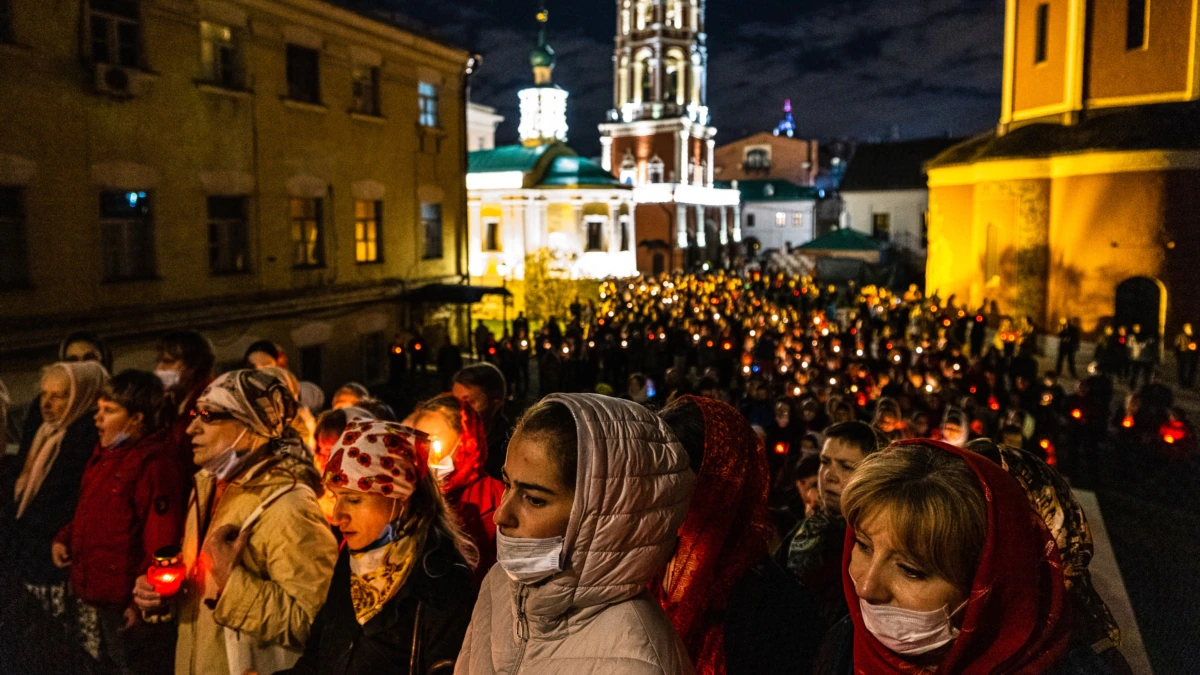
Orthodox Christians are marking Easter in largely toned-down celebrations due to coronavirus restrictions, with prayers going out that the pandemic will soon be over.
In Jerusalem, on the eve of Easter believers flocked to the Church of the Holy Sepulchre, packing the revered site where they believe Jesus was crucified and resurrected for the Holy Fire ceremony.
Entry to the church was restricted to those who were fully vaccinated.
Israel has lifted most restrictions, including mask-wearing in public, after a world-leading vaccination drive.
In normal years, Orthodox Easter draws tens of thousands of tourists and pilgrims to holy sites in Jerusalem and Bethlehem, but this year air travel from abroad is still restricted due to the pandemic.
In Russia, Patriarch Kirill of Moscow and all Russia led an Easter divine service at the Christ the Savior Cathedral, attended by President Vladimir Putin.
“This Easter is special and its special nature lies in the hope that the bane of the pandemic will pass and, leaving us with a number of important lessons, will after all abandon us forever,” Kirill told the Russia-24 TV channel.
Many countries are restricting normal Orthodox Easter celebrations, after last year much of the world lived in lockdown.
Ecumenical Patriarch Bartholomew I, the spiritual leader of the world’s Orthodox Christians based in Istanbul, has conducted various Easter celebrations over the weekend with limited attendance, as Turkey is under a strict lockdown.
In Greece, the government kept pandemic restrictions in place through the Easter holiday while preparing to restart services for tourists next week. Many church services were held outdoors and those indoors required social distancing and mask wearing.
In Lebanon, a curfew was in effect to curb the spread of coronavirus and churches were allowed to hold Easter Mass and prayers only at 30 percent capacity.
In Egypt, home to about 10 million of Coptic Christians, churches were told to limit attendance to 25 percent or less.
In the Egyptian coastal city of Alexandria, Greek Orthodox Patriarch Theodore of Alexandria and all Africa prayed for the joy of Christ’s resurrection to “drive away all the clouds of the pandemic and bring back the smile on your face, the love in your heart, the optimism in our eyes.”
In Serbia, which has a fairly high rate of 50 vaccine doses administered per 100 people, believers are expected to attend church services.
RFE/RL’s Balkan Service reported concerns that churches may continue a tradition of sharing communion from a common spoon.
Last year, 90-year-old Serbian Orthodox Church Patriarch Irinej died from COVID-19 a month after leading a service for Metropolitan Amfilohije, the head of the Serbian Orthodox Church in Montenegro, who also died from the virus.